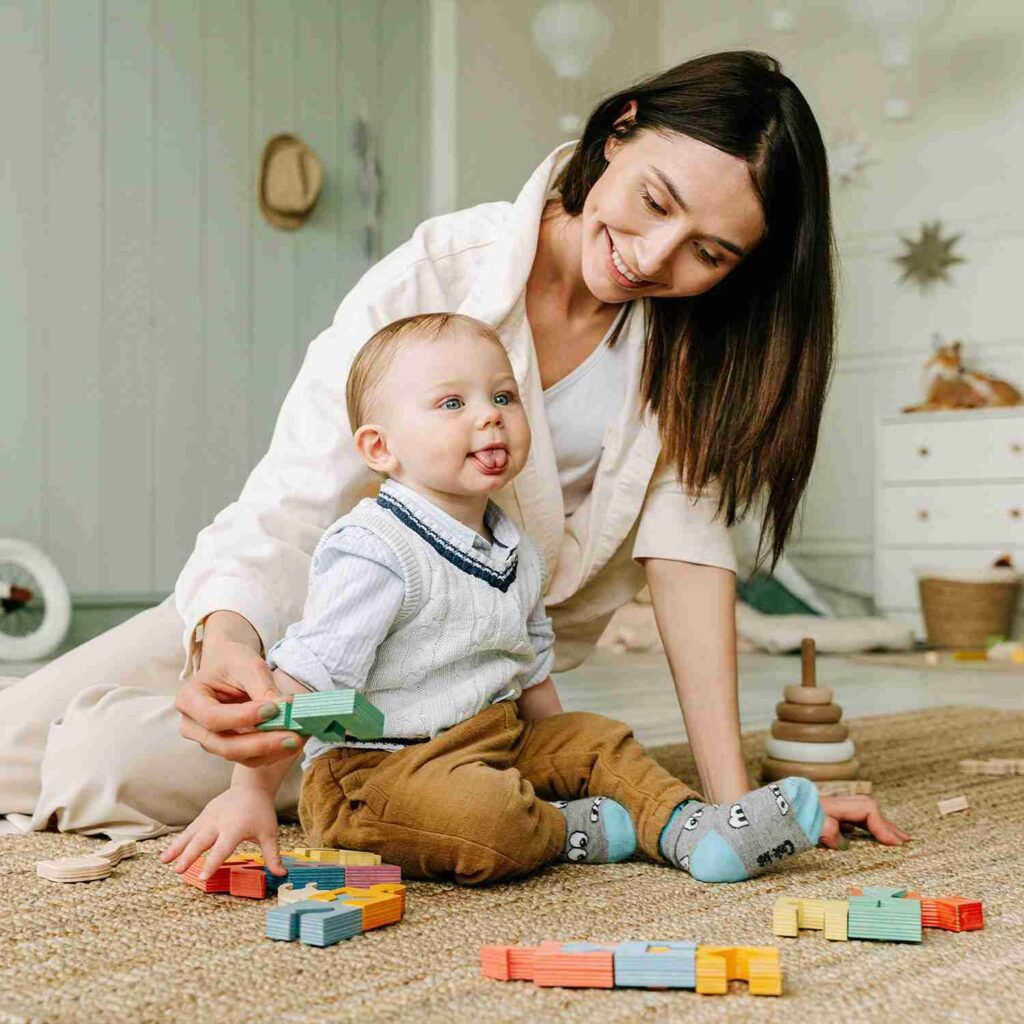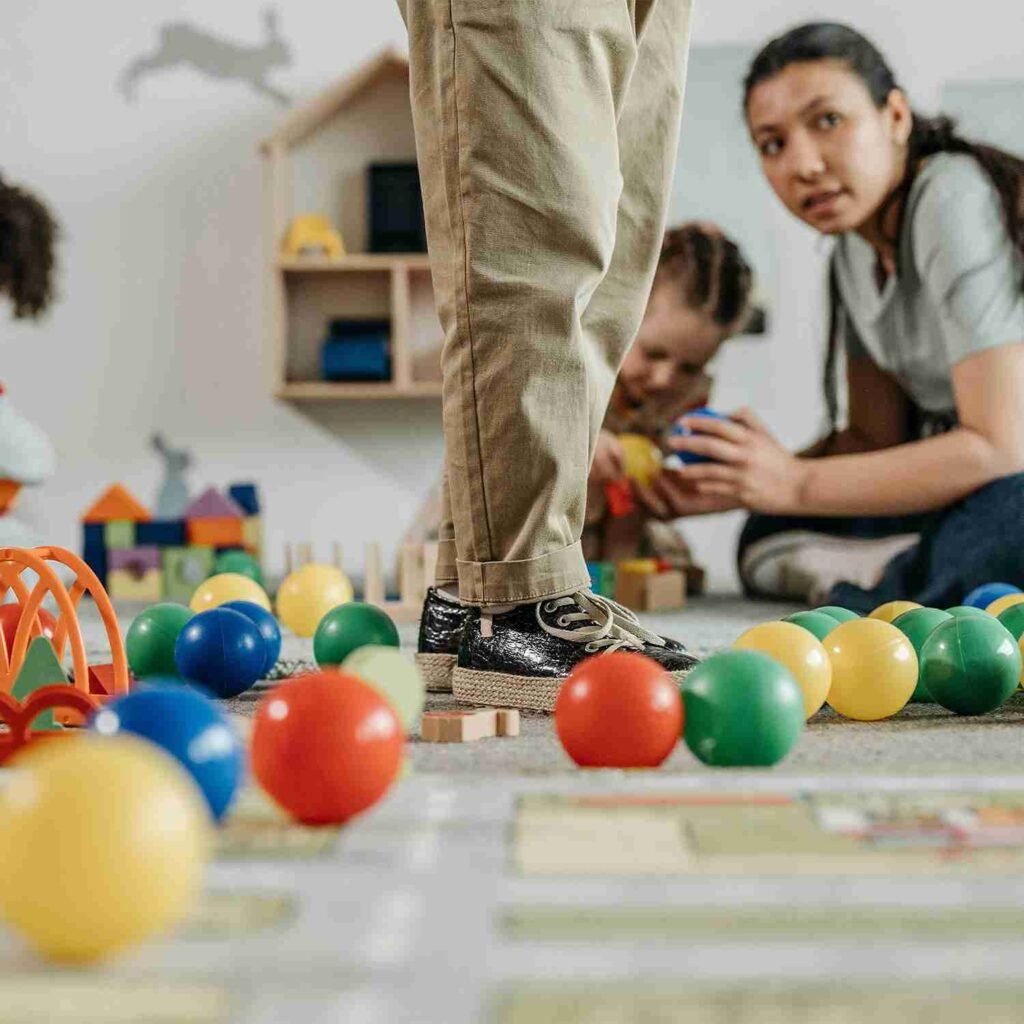Play holds significant importance for babies and toddlers as it contributes to the development of robust brain architecture, laying the groundwork for lifelong health and fostering essential elements of resilience. Through play, infants and toddlers engage in activities that stimulate neural connections, supporting cognitive, emotional, and social development. These early interactions with their environment form the foundation for future learning and adaptability, making play an integral aspect of their developmental journey
Engaging in playful interactions with adults is instrumental in facilitating the development of executive function skills in toddlers. Activities such as imitation, hiding, imaginative play, and container play games serve as effective tools for enhancing their ability to focus attention, utilize working memory, and cultivate rudimentary self-control. These interactive experiences provide valuable opportunities for toddlers to strengthen cognitive abilities essential for learning and problem-solving. attention, utilize working memory, and cultivate rudimentary self-control. These interactive experiences provide valuable opportunities for toddlers to strengthen cognitive abilities essential for learning and problem-solving.
When engaging in play with a baby, it is advantageous to follow their cues and interests. Participate in games that capture their attention, and, whenever feasible, allow them to dictate the duration of play and transitions to other activities. By honoring their preferences and pace, caregivers promote a sense of autonomy and agency in the child, fostering a positive and enriching play experience

Toddler See, Toddler Do!
Encourage a toddler to mimic your actions during playtime together. For instance, set up a scenario such as arranging toy animals in a barnyard, lining up toy cars, or stacking blocks and then toppling them over. When the toddler replicates these actions, offer specific praise such as ‘Impressive! Look at the tower you built!’ or ‘Well done! The cars are all set for a race!’ This positive reinforcement reinforces the toddler’s imitation skills and fosters a sense of accomplishment

Explore on the Floor
infants derive pleasure from exploring their environment as they progress through different stages of mobility, including crawling, standing with assistance, or taking their initial steps. Engage with a toddler during playtime at their level, adapting to their current developmental stage. Situating oneself on the floor nearby, with pillows, couch cushions, or soft toys arranged as ‘obstacles,’ encourages the toddler to navigate and interact with their environment. They may climb over the cushions, stack them, carry them, or engage in imaginative play, such as pretending to lay down for sleep. This interactive play promotes physical activity, problem-solving skills, and creativity in toddlers.

“It’s For You!”
One-year-olds are beginning to grasp the concept of imaginative play. An easy method to encourage this development is by engaging in pretend play with them. For instance, hold a toy, banana, shoe, or even just your hand up to your ear and pretend to have a conversation on the phone with a family member or friend. After concluding your pretend call, make a ringing sound again, but this time inform the toddler that someone is calling for them! Hold the ‘phone’ up to their ear and encourage them to say ‘Hello’ and engage in imaginary conversation.

Dump and Fill
Toddlers derive immense enjoyment from the repetitive action of placing items into a container and subsequently emptying them out. This behavior, commonly observed when toddlers overturn laundry baskets or bins of toys, can be redirected into a constructive activity. Encourage and guide this exploration by offering a selection of containers, such as empty mixing bowls, boxes, or baskets, along with safe items to fill them, such as toys or socks

Simple Hide and Seek
At this developmental stage, toddlers may find enjoyment in hiding themselves while listening to caregivers search for them. This activity promotes cognitive skills as toddlers mentally track the location of the searcher. Maintain the excitement of the game by exaggerating movements and words, searching in unconventional places, and narrating the search process. For example, ‘Where is the baby? Is the baby under the table? No. Is the baby on the ceiling? No. Is the baby behind the couch? Yes! I found you!’ This interactive game encourages cognitive development and fosters a sense of joy and engagement in toddlers